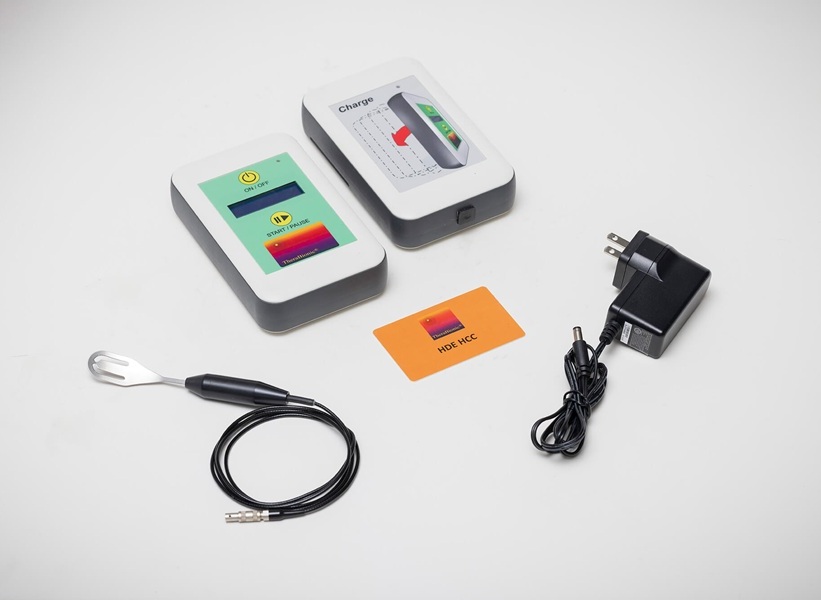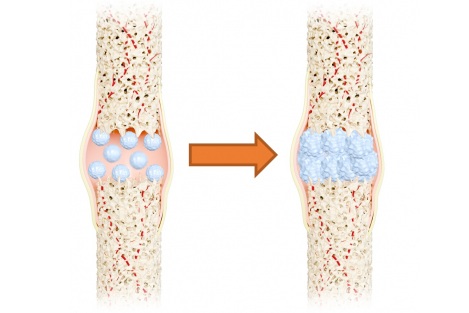Magnetic Stimulation Improves Neuropathy Fecal Incontinence
|
By HospiMedica International staff writers Posted on 07 Sep 2020 |
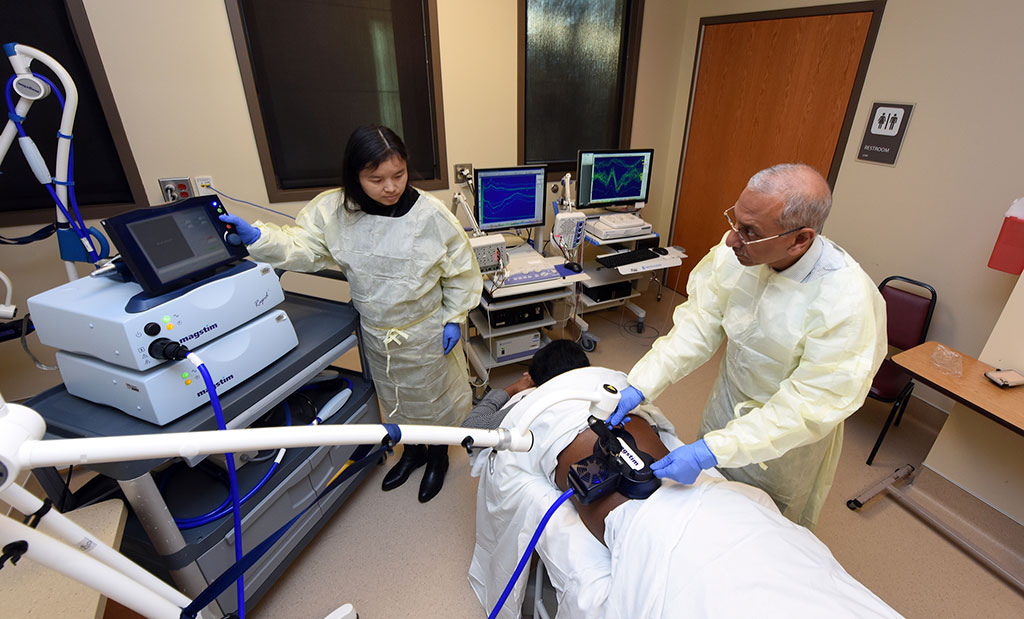
Image: Dr. Satish Rao MD performing TNT on a patient with FI (Photo courtesy of Medical College of Georgia)
Translumbosacral neuromodulation therapy (TNT) of nerves that regulate muscles in the anus and rectum dramatically reduce episodes of fecal incontinence (FI), according to a new study.
Researchers at the Medical College of Georgia (MCG; Augusta USA) and the University of Manchester (United Kingdom) conducted a study involving 33 patients with FI (23 women, average 60 years of age) who were randomized to receive six sessions of weekly TNT treatments. The treatment consisted of 600 repetitive magnetic stimulations over each of two lumbar and two sacral sites with 1, 5, or 15 Hz frequency stimulations. Stool diaries, FI severity indices, anorectal neurophysiology, sensorimotor function, and quality of life were compared.
The results revealed that FI episodes decreased significantly in all the groups when compared with baseline; but the 1 Hz group showed a significantly higher responder rate when compared with the 5 Hz group or 15 Hz groups. No difference was found between the 5 and 15 Hz groups. Anal neuropathy, squeeze pressure, and rectal capacity improved significantly only in the 1 Hz group compared with baseline, but not in other groups. And quality of life domains improved significantly within the 1 and 5 Hz groups. The study was published on July 29, 2020, in The American Journal of Gastroenterology.
“We found there was significant improvement in fecal incontinence across the board, which told us something is happening with this treatment. There is an effect on nerve function which, in turn, is leading to improvement of symptoms,” said lead author Satish Rao MD, PhD, of MCG. “We have identified that nerve damage is an important mechanism in the pathogenesis of stool leakage. A noninvasive and targeted treatment to correct the nerve damage addresses this pervasive problem.”
Fecal incontinence, also known as accidental bowel leakage (ABL), is the inability to control bowel movements and is a common problem, especially among older adults. FI particularly affects women who have experienced pregnancy, childbirth, or nerve or muscle damage in the pelvic region. As there are multiple causes for bowel control problems, effective treatment is particularly difficult, and usually includes dietary modification, medical management, physical therapy, and often surgery or surgical implants. FI impacts women about twice as often as men.
Related Links:
Medical College of Georgia
University of Manchester
Researchers at the Medical College of Georgia (MCG; Augusta USA) and the University of Manchester (United Kingdom) conducted a study involving 33 patients with FI (23 women, average 60 years of age) who were randomized to receive six sessions of weekly TNT treatments. The treatment consisted of 600 repetitive magnetic stimulations over each of two lumbar and two sacral sites with 1, 5, or 15 Hz frequency stimulations. Stool diaries, FI severity indices, anorectal neurophysiology, sensorimotor function, and quality of life were compared.
The results revealed that FI episodes decreased significantly in all the groups when compared with baseline; but the 1 Hz group showed a significantly higher responder rate when compared with the 5 Hz group or 15 Hz groups. No difference was found between the 5 and 15 Hz groups. Anal neuropathy, squeeze pressure, and rectal capacity improved significantly only in the 1 Hz group compared with baseline, but not in other groups. And quality of life domains improved significantly within the 1 and 5 Hz groups. The study was published on July 29, 2020, in The American Journal of Gastroenterology.
“We found there was significant improvement in fecal incontinence across the board, which told us something is happening with this treatment. There is an effect on nerve function which, in turn, is leading to improvement of symptoms,” said lead author Satish Rao MD, PhD, of MCG. “We have identified that nerve damage is an important mechanism in the pathogenesis of stool leakage. A noninvasive and targeted treatment to correct the nerve damage addresses this pervasive problem.”
Fecal incontinence, also known as accidental bowel leakage (ABL), is the inability to control bowel movements and is a common problem, especially among older adults. FI particularly affects women who have experienced pregnancy, childbirth, or nerve or muscle damage in the pelvic region. As there are multiple causes for bowel control problems, effective treatment is particularly difficult, and usually includes dietary modification, medical management, physical therapy, and often surgery or surgical implants. FI impacts women about twice as often as men.
Related Links:
Medical College of Georgia
University of Manchester
Latest Patient Care News
- Revolutionary Automatic IV-Line Flushing Device to Enhance Infusion Care
- VR Training Tool Combats Contamination of Portable Medical Equipment
- Portable Biosensor Platform to Reduce Hospital-Acquired Infections
- First-Of-Its-Kind Portable Germicidal Light Technology Disinfects High-Touch Clinical Surfaces in Seconds
- Surgical Capacity Optimization Solution Helps Hospitals Boost OR Utilization

- Game-Changing Innovation in Surgical Instrument Sterilization Significantly Improves OR Throughput
- Next Gen ICU Bed to Help Address Complex Critical Care Needs
- Groundbreaking AI-Powered UV-C Disinfection Technology Redefines Infection Control Landscape
- Clean Hospitals Can Reduce Antibiotic Resistance, Save Lives
- Smart Hospital Beds Improve Accuracy of Medical Diagnosis
- New Fast Endoscope Drying System Improves Productivity and Traceability
- World’s First Automated Endoscope Cleaner Fights Antimicrobial Resistance
- Portable High-Capacity Digital Stretcher Scales Provide Precision Weighing for Patients in ER
- Portable Clinical Scale with Remote Indicator Allows for Flexible Patient Weighing Use
- Innovative and Highly Customizable Medical Carts Offer Unlimited Configuration Possibilities
- Biomolecular Wound Healing Film Adheres to Sensitive Tissue and Releases Active Ingredients
Channels
Critical Care
view channel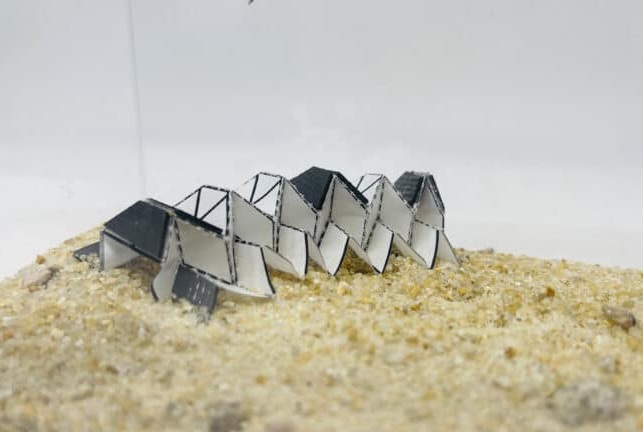
Origami Robots to Deliver Medicine Less Invasively and More Effectively
Delivering medicine to ulcers or other internal sites often requires invasive procedures that can disrupt surrounding tissues and lengthen recovery times. Traditional magnetic actuators used in soft robotics... Read more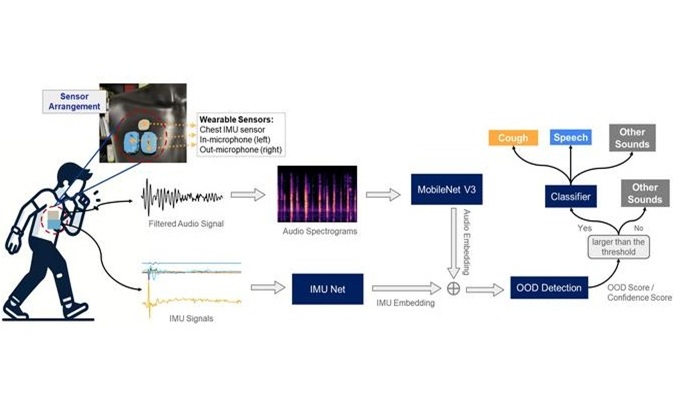
Improved Cough-Detection Technology Aids Health Monitoring
Coughing serves as an important biomarker for tracking a variety of conditions and can help monitor the progress of respiratory diseases or predict when someone’s asthma is being exacerbated.... Read moreSurgical Techniques
view channel
Novel Glue Prevents Complications After Breast Cancer Surgery
Seroma and prolonged lymphorrhea are among the most common complications following axillary lymphadenectomy in breast cancer patients. These postoperative issues can delay recovery and postpone the start... Read more
Breakthrough Brain Implant Enables Safer and More Precise Drug Delivery
Delivering medication directly to specific regions of the brain has long been a major challenge in treating neurological disorders. Current implants and infusion systems typically reach only one or two... Read moreHealth IT
view channel
Printable Molecule-Selective Nanoparticles Enable Mass Production of Wearable Biosensors
The future of medicine is likely to focus on the personalization of healthcare—understanding exactly what an individual requires and delivering the appropriate combination of nutrients, metabolites, and... Read moreBusiness
view channel
Philips and Masimo Partner to Advance Patient Monitoring Measurement Technologies
Royal Philips (Amsterdam, Netherlands) and Masimo (Irvine, California, USA) have renewed their multi-year strategic collaboration, combining Philips’ expertise in patient monitoring with Masimo’s noninvasive... Read more
B. Braun Acquires Digital Microsurgery Company True Digital Surgery
The high-end microsurgery market in neurosurgery, spine, and ENT is undergoing a significant transformation. Traditional analog microscopes are giving way to digital exoscopes, which provide improved visualization,... Read more
CMEF 2025 to Promote Holistic and High-Quality Development of Medical and Health Industry
The 92nd China International Medical Equipment Fair (CMEF 2025) Autumn Exhibition is scheduled to be held from September 26 to 29 at the China Import and Export Fair Complex (Canton Fair Complex) in Guangzhou.... Read more












